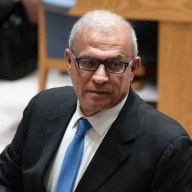Sharing a joint bank account with an elderly parent seems like the obvious choice when you’re tasked with managing his or her finances.
It worked for Pat Sikora and her mom, but it was challenging. After decades of tracking her finances in a little notebook, Sikora’s mom wasn’t pleased with the spreadsheet her daughter used to manage her account. “Giving up control was really hard for her,” Sikora says.
Joint bank accounts can work for some families, but experts warn that they carry legal risks. A power of attorney, a document that gives a person permission to make financial decisions for another, can offer the same benefits without the consequences. Benefits of a joint bank account
As the co-owner of a joint bank account, an adult child has the same privileges as the parent. With that access, the child can:
– Help the parent identify fraudulent activity on the account. The Consumer Financial Protection Bureau estimates financial exploitation costs older Americans $2.9 billion each year. Sikora’s husband suffers from Parkinson’s disease, which adds to the family’s expenses. The joint bank account prevented financial hardships when her mom died because it covered funeral expenses and remaining bills. »MORE: What is a senior checking account?
Legal consequences of a joint bank account
A joint bank account carries some legal risks for parents and children, Colorado attorney Catherine Seal says. These legal consequences vary by state and can cause financial hardships.
– Creditors ofeither owner can use the account to satisfy debts. An account can be drained if the parent or child has unpaid debts. »MORE: NerdWallet’s best checking accounts
Safer options
A convenience account, available at some banks in some states, can be slightly safer.
“This account is opened with the understanding of both parties that after the parent dies, the account is not intended as a gift to the co-owner of the account,” says New York attorney Linda Toga.But she says a power of attorney is better because a convenience account is still a joint account with many of the legal risks mentioned above. With a power of attorney, the parent remains as the owner of the bank account and the adult child is chosen as the agent to make his or her financial decisions.
Elizabeth Miller and her three sisters share power of attorney for her mom, Carole. They monitor her account carefully to guard against fraud and have been able to get money back from questionable transactions. “We have to all be paying attention to protect my mom because she is gullible and innocent,” Miller says.
A power of attorney can cost several hundred dollars, depending on how complex it is. Legal services online or legal aid clinics can lower the cost. Forms may also be available for free on your state’s website, but you risk leaving something out by doing it on your own. »MORE: The uncomfortable questions baby boomers need to ask their parents It’s never too early to plan
It’s hardfor both child and parent to make peace with their roles being reversed.
After Sikora’s mom died, Sikora found out her mom was still trying to track her own finances in the little notebook she was so attached to. Her mom didn’t fully accept the transition, but it was bearable because Sikora initiated conversations years before changes took place. “The dialogue needs to start years before the need occurs,” Sikora says.
She didn’t wait until it was too late, and neither should you.
Melissa Lambarena is a staff writer at NerdWallet, a personal finance website. Email: mlambarena@nerdwallet.com. Twitter: @LissaLambarena. This article was written by NerdWallet and was originally published by USA Today. The article Sharing a Bank Account With an Elderly Parent Can Be Risky originally appeared on NerdWallet.
– Keep tabs on bank fees, such as overdraft charges.
– Pay the parent’s bills if his or her health fails.
– Siblings could be disinherited. Depending on the terms of the account, the money could go to the co-owner when a parent dies. The rights of survivorship on the account could bypass a will or other estate planning provisions.
– The money could be involved in a divorce. The bank account may be listed as an asset in the adult child’s divorce. An attorney would have to build a record to prove that the money belongs to the parent.
– Either owner could forfeit eligibility for financial assistance. Whether the adult child wants financial aid for his college-bound kid or the elderly parent needs Medicaid, the money in the account is factored into eligibility.













